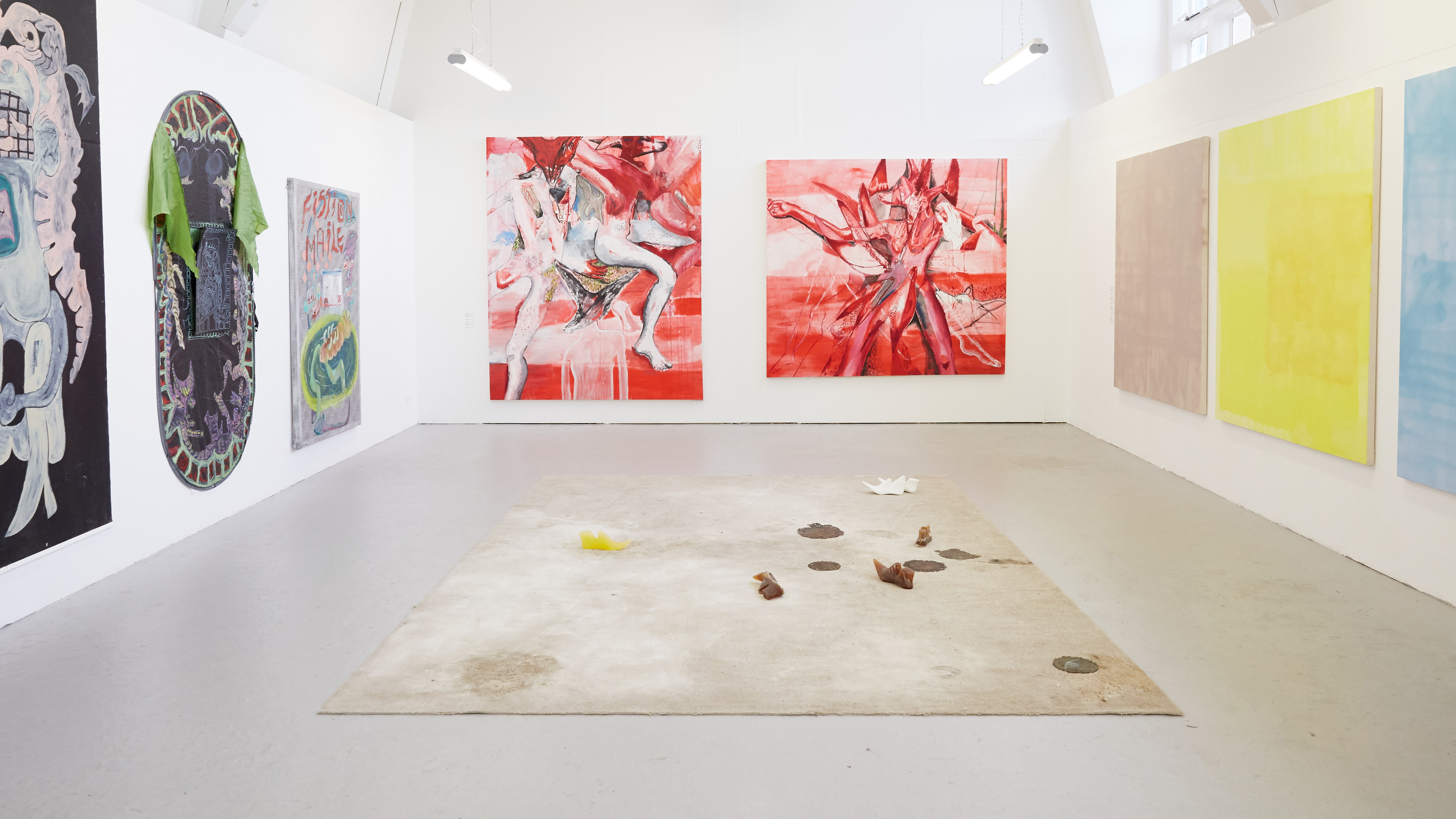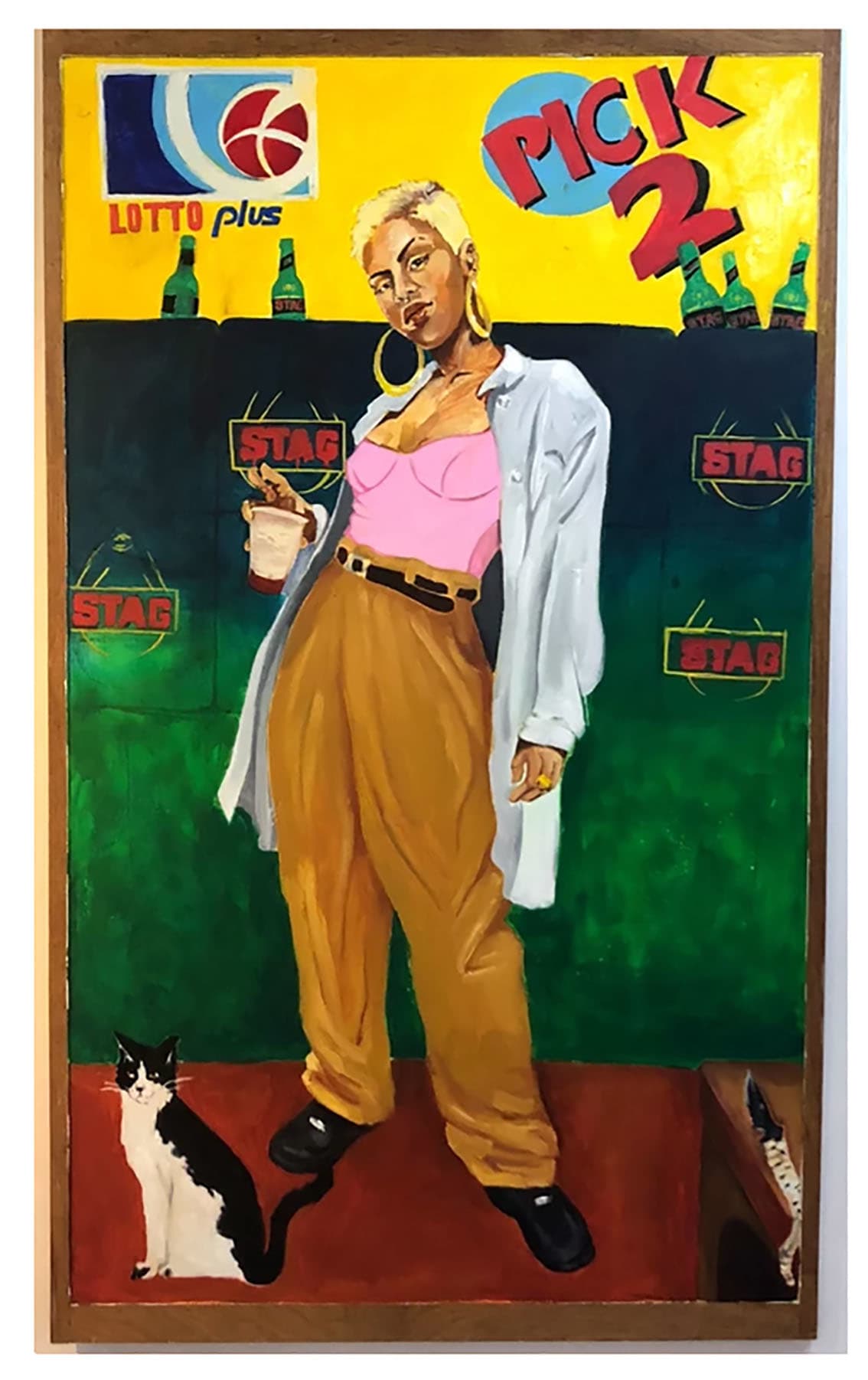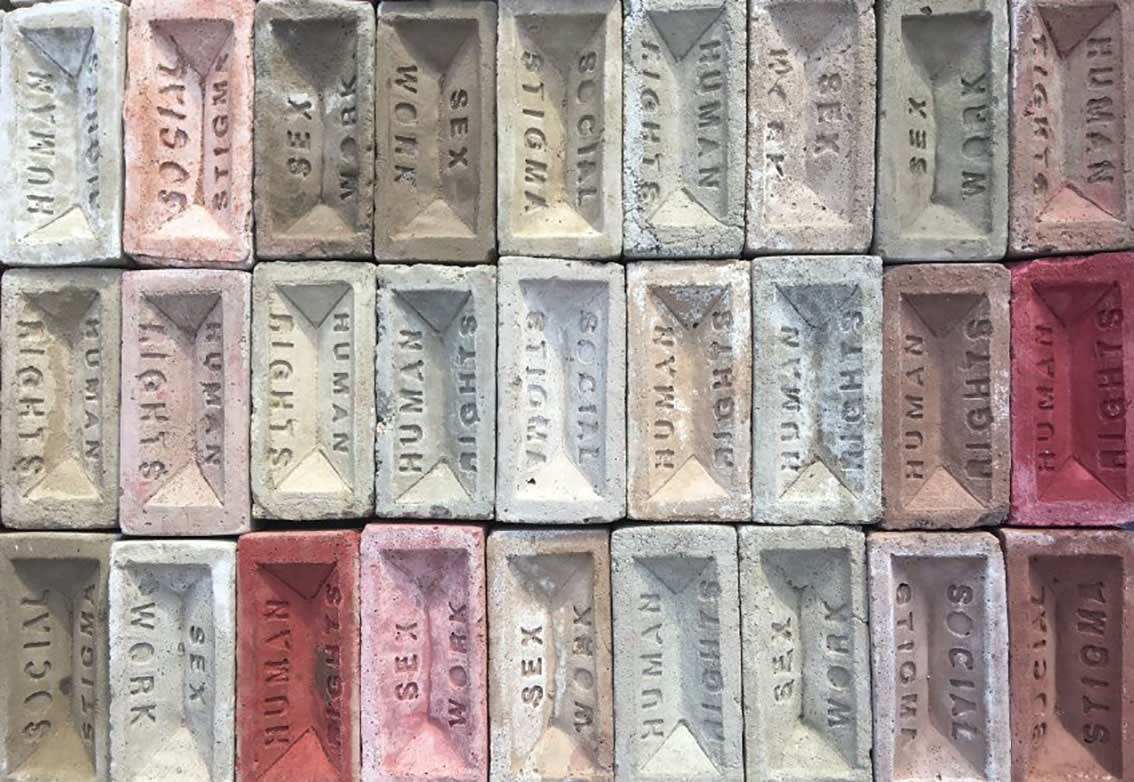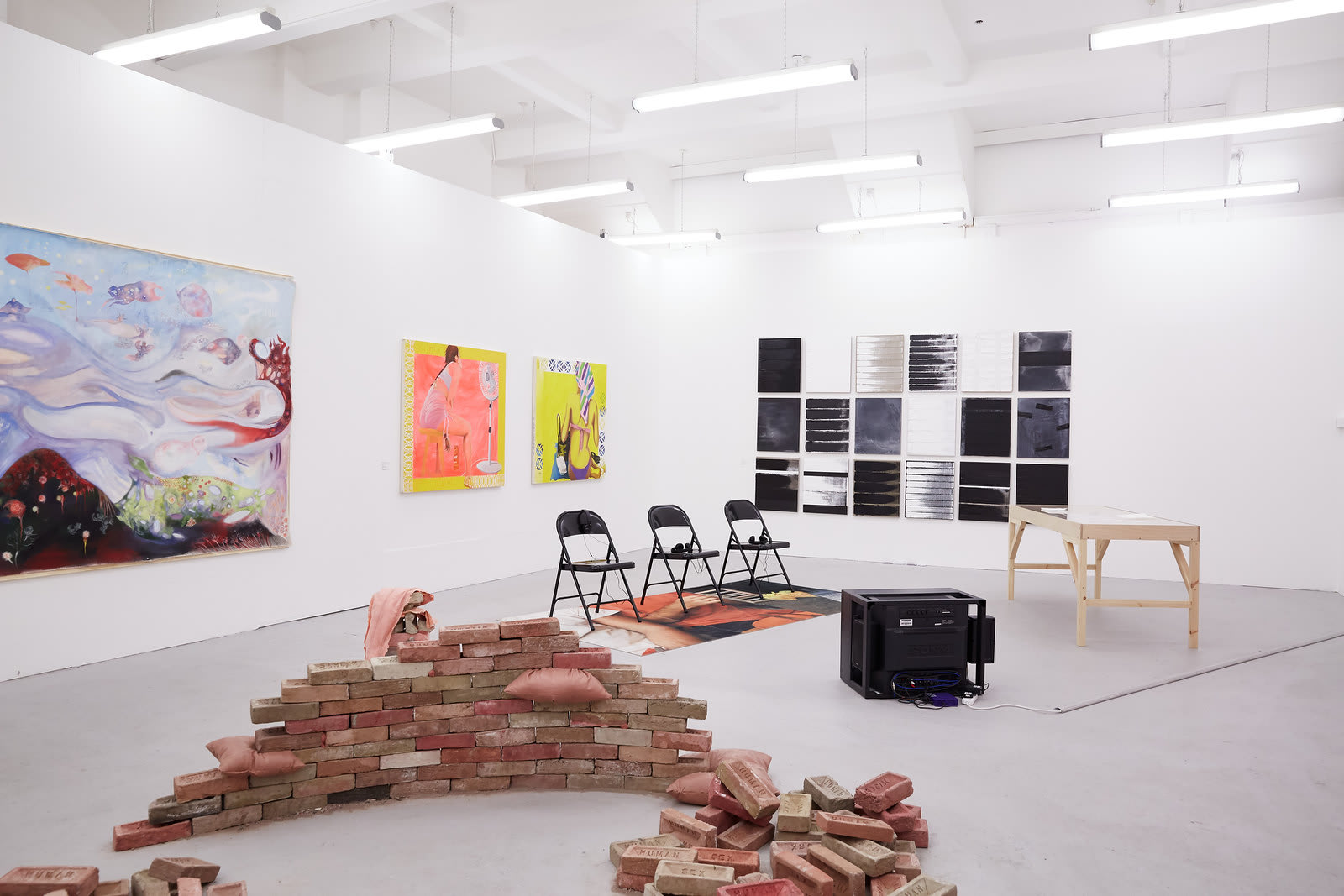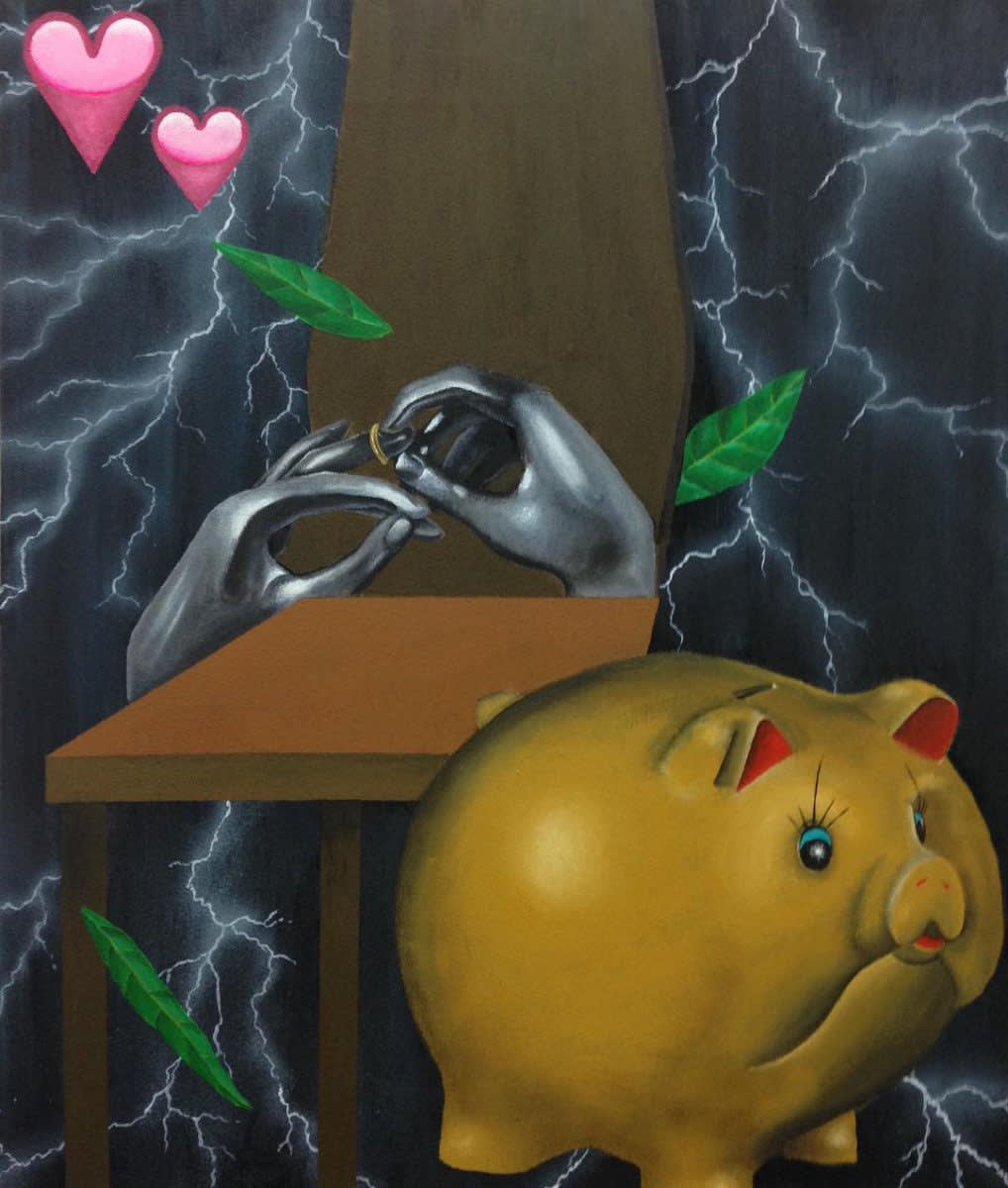Course units
Year 1
Unit 1: Introduction to Fine Art
This unit is an introduction to your course, the university and London as a resource.
Unit 2: Experiment through making
You’ll now begin to develop an independent art practice through self- directed projects. You can take risks to experiment with your painting, supported by discussion with your tutors and student peers, as well as by technical inductions and lectures. Timetabled workshops, seminars, lectures and tutorials will introduce concepts of ‘learning how to learn’, where staff will explain how to navigate the steps from not knowing to knowing. You’ll be expected to apply these skills to suit your own priorities and learning needs.
Unit 3: Articulate about practice
As you make new and engaging artworks in preparation for an end-of-unit exhibition, you’ll continue to extend and innovate your practice by developing your exploration of materials, technical methods, working processes and thematic concerns. You’ll also develop your ability to communicate the story of your practice fluently and coherently through workshops, presentations and critiques. We’ll introduce you to writing, presentation and research strategies that help deepen your enquiry. You'll also begin to articulate your professional position through role play in a collaborative group to transform your exhibition ideas into reality.
Unit 4: Horizons beyond the studio
Unit 4 will develop your ability to adapt to a new horizon of working outside the studio by making and presenting an artist’s publication, with workshops to guide you. With our studios now allocated for Degree Show preparation, this unit is designed to foster flexibility and entrepreneurship in your practice.
Year 2
Unit 5: Collaborative and collective practices
You’ll be introduced to different ways in which collaborative working can help you to focus and enhance your own creative strengths. You’ll have the chance to work with fellow students and creative communities.
Unit 6: Statements and opportunities
As you continue to progress your art making through experimentation, play and risk taking, this unit also invites and supports you to consider your future professional pathways in the world beyond the university. We’ll introduce you to a variety of key roles in the sector and ask you to consider the risks and advantages of a career in the arts. As you receive guidance about how to assess possible options, you’ll produce a statement that aligns your practice within a relevant professional field.
Unit 7: Understanding art contexts
This unit is designed for you to further enhance your learning through experimentation and risk taking in your individual studio practice. You’ll be required to produce artworks to show in an exhibition, as well as to produce writing or a presentation that contextualises your artwork. You’ll also consider the context of your work in specific sites and spaces as you examine exhibition options and gain valuable experience of the skilled roles necessary for successful show production.
Unit 8: Proposal for future study
Unit 8 is a springboard to launch you into your final year of study. As a non-studio unit, it’s designed as an exciting opportunity to reflect on the direction of your practice and imagine your third year and beyond. You’ll produce a deeply considered proposal about your future art and research, alongside a piece of creative writing or presentation.
Year 3
Unit 9: Professional futures
This unit aims to address the 3Es: employability, enterprise and entrepreneurship. You'll reflect on your learning and skills across the entirety of your study. You’ll have an opportunity to showcase your outcomes and intentions. You'll consider your next steps as you enter industry or continue with your education.
Unit 10: Research and development
Build upon the vision you created in Unit 8, challenging your concepts and ideas to develop a body of practical work for a public audience. Your involvement in producing an interim exhibition will deepen your curating, installation and publicity skills. The interim show will be an opportunity for you to begin conversations with artworld professionals. This will be supported by a piece of sustained research produced either in written form, presentation, live project, creative project or work placement that will give you an opportunity to further stimulate your intellectual engagement with your subject.
Unit 11: Refinement for exhibition
Working sustainably and ethically, you’ ll refine everything you have learned across the course to create new work and share it with the world through Camberwell’s degree show. Collaborating to produce the exhibition will further refine your curating, installation and publicity skills.
With an international audience, this showcase is a space for you to establish connections and opportunities in the artworld.
Optional Diploma between Years 2 and 3
Between Years 2 and 3 of the course, you’ll also have the opportunity to undertake one of the following additional UAL qualifications:
Diploma in Professional Studies (DPS)
This optional diploma can be taken between years 2 and 3. With support from your tutors, you’ll undertake an industry placement for a minimum of 100 days/20 weeks. As well as developing industry skills, you’ll gain an additional qualification upon successful completion.
Diploma in Creative Computing
Between years 2 and 3, you can undertake the year-long Diploma in Creative Computing. This will develop your skills in creative computing alongside your degree. After successfully completing the diploma and your undergraduate course, you’ll graduate with an enhanced degree: BA (Hons) Fine Art: Painting (with Creative Computing).
Diploma in Apple Development
This optional diploma can be taken between years’ 2 and 3. You’ll have the opportunity to become an accredited Apple developer, undertaking a learning programme designed by Apple for UAL. After successfully completing the diploma and your undergraduate degree, you’ll graduate with an enhanced degree: BA (Hons) Art Direction and Visual Effects (with Apple Development).
